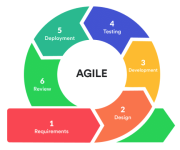A Guide to the Hidden Risks of Using AI to Write Your Will
Wills and probate lawyers are seeing a dramatic shift in how people approach estate planning. With the rise of artificial intelligence tools, more individuals are turning to online will-writing platforms or even AI-generated templates to draft their most important documents.
At first glance, these tools seem convenient and cost-effective. But when it comes to something as critical as your legacy, convenience could come at a steep price.
AI is changing how we do everything—from writing emails to creating legal contracts. But when your will governs who inherits your assets, how your children are cared for, or even how your funeral is conducted, is AI really the best option? In this blog post, our experts explore the hidden risks of using AI to write your will, and why working with a qualified solicitor remains the safest route for lasting peace of mind.
The Illusion of Accuracy
AI tools rely on language patterns, not legal judgement. While some AI platforms are trained on legal documents, they can’t interpret personal context or changing legislation. An AI-generated will may look professional, but subtle errors in phrasing could render the entire document invalid or trigger family disputes.
One of the most common problems is the misuse or omission of key legal terms. A phrase that sounds clear to a layperson might contradict itself legally. For example, not distinguishing between a residuary estate and specific bequests can cause confusion during probate.
The UK Government makes it clear that your will must meet legal standards to be valid, including correct witnessing and signing procedures. AI tools rarely provide guidance tailored to your personal circumstances.
AI Can’t Anticipate Family Dynamics
A significant challenge in will-writing is managing potential disputes among beneficiaries. AI cannot understand complex family relationships, estrangement, blended families, or informal financial arrangements. These are the very issues most likely to lead to contested wills.
Human solicitors are trained to ask the difficult questions: Should a dependent child receive more support than a distant cousin? What happens if an executor dies before you do? How should joint ownership or overseas property be handled?
AI cannot foresee these nuances. And if disputes arise, poorly written wills could be challenged in court, leading to stress, legal fees, and delays for your loved ones.
The Citizens Advice website provides helpful guidance on how wills can be contested and why clarity and legal advice matter so much.
The Risk of Invalid Execution
Even a well-written will is useless if it’s not signed and witnessed properly. AI tools often fail to provide clear, jurisdiction-specific guidance on how to execute a will lawfully.
In England and Wales, two independent witnesses must watch you sign the will in person—and they must not be beneficiaries or spouses of beneficiaries. A failure to follow this process invalidates the document entirely.
The rise of digital and remote communication has only added confusion. While temporary rules allowed remote witnessing during the COVID-19 pandemic, these changes are not permanent, and relying on outdated guidance from an AI tool can cause your will to be rejected.
As the Law Society points out, digital legal services must be treated with caution when life-altering decisions are involved.
Data Privacy and Security Concerns
Writing a will involves sharing highly sensitive information: your assets, family details, debts, and funeral wishes. Uploading this information to an AI platform, especially if it’s unregulated or based overseas, could expose your data to misuse or hacking.
Unlike solicitors, AI platforms are not bound by strict client confidentiality rules. They may store your will on insecure servers, use your data to train algorithms, or share your information with third parties for marketing purposes.
With growing concerns around data privacy, particularly following high-profile breaches and AI misuse, many experts advise caution. The Information Commissioner’s Office (ICO) offers important guidance on how your personal data should be protected—and what rights you have if it’s mishandled.
AI Can’t Offer Legal Advice or Adapt to Changing Laws
Wills need to be tailored to your unique circumstances and updated regularly as laws and life situations change. An AI platform might draft a basic will, but it won’t notify you if new inheritance tax rules come into effect or if your will becomes outdated following a marriage or birth.
Solicitors, by contrast, can advise on complex issues like:
- How to protect vulnerable beneficiaries with trusts
- Inheritance tax planning
- Care home fees
- International assets
These are not one-size-fits-all matters. Without proper legal guidance, your loved ones could lose out on what you intended for them.
False Sense of Security
AI-generated wills often give users the impression that everything is handled—when in fact, major risks may remain hidden. This false sense of security is arguably the biggest danger of all.
Your will is a legal safety net. It should be watertight, clearly written, and regularly reviewed. If you wouldn’t trust a robot to manage your bank account or care for your children, why trust it with your final wishes?
When Is AI Helpful?
This isn’t to say AI has no place in estate planning. Some platforms offer useful prompts or templates to help you think through your wishes. Others can serve as a starting point before you consult a solicitor.
But AI should complement—not replace—legal expertise. Use it to organise your thoughts, not to draft your final document.
Solicitors can work alongside these tools to streamline processes and offer hybrid services. However, legal checks and personal guidance must still be the cornerstone of your planning.
Your Legacy Deserves More Than an Algorithm
You’ve worked hard to build a life, support your family, and plan for the future. Don’t let your legacy be left to chance.
A will is more than a formality—it’s your final word. Ensuring it’s valid, fair, and secure is one of the most important acts of care you can offer to those you leave behind.
AI may promise quick fixes, but when the stakes are this high, professional advice offers the clarity and protection your loved ones deserve.
This article is for informational purposes only and does not constitute legal advice. For guidance tailored to your circumstances, always consult a qualified solicitor specialising in wills, probate, and estate planning.



























